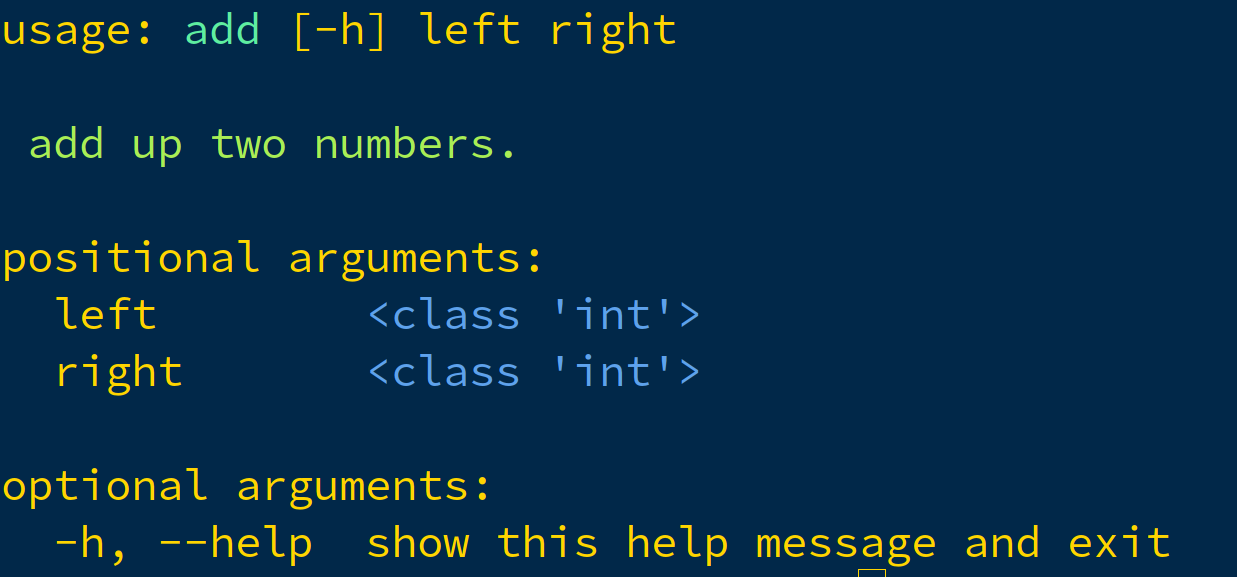
Since we found that the capabilities/features doesn't attract people into using wisepy, thus we go to an extreme, making the simplest command line tool for Python, but also capable of covering the regular use cases.
Two examples are given in the root directory of this project.
from wisepy2 import *
def add(left: int, right: int):
"""
add up two numbers.
"""
print(left + right)
return 0
if __name__ == '__main__':
wise(add)()@wise
class Cmd:
class Int:
@staticmethod
def add(a: int, b: int):
print(a + b)
class Str:
@staticmethod
def concat(a: str, b: str):
print(a + b)
@staticmethod
def repeat(a: str, b: int):
print(a * b)
if __name__ == '__main__':
wise(add)()
shell> python xxx.py Int add 1 2 # 3
shell> python xxx.py Str concat 1 2 # 12
shell> python xxx.py repeat 1 2 # 11Wisepy2 converts a function into a command, where following components of python functions correspond to the command components. Here're the mapping rules:
variadic args: a positional argument that accepts variable number of arguments, likenargs="*"inargparse.annotations: an annotation will be transformed to the help doc of an argument. If it's a type, the argument is automatically converted to the type you expect.default argument: default value will be equivalent to specifyingdefaultinargparse.keyword argument: keyword only or postional_or_keyword arguments with default values can be passed by--arg value.- arguments that're annotated
booland haveTrueorFalsedefault arguments: these arguments can changed as the opposite of its default value by giving--arg.
